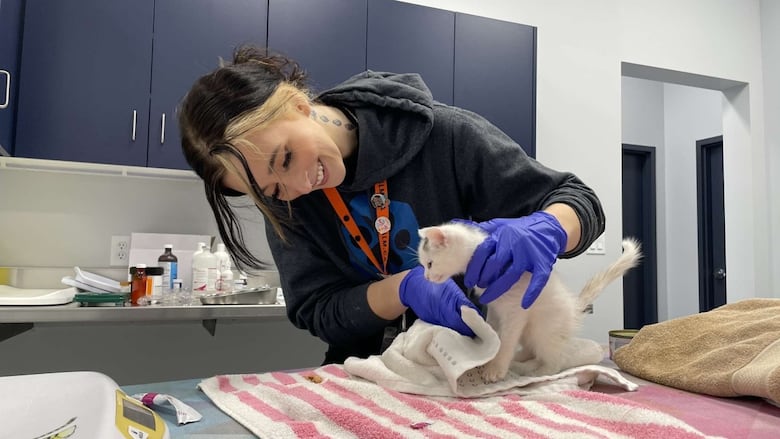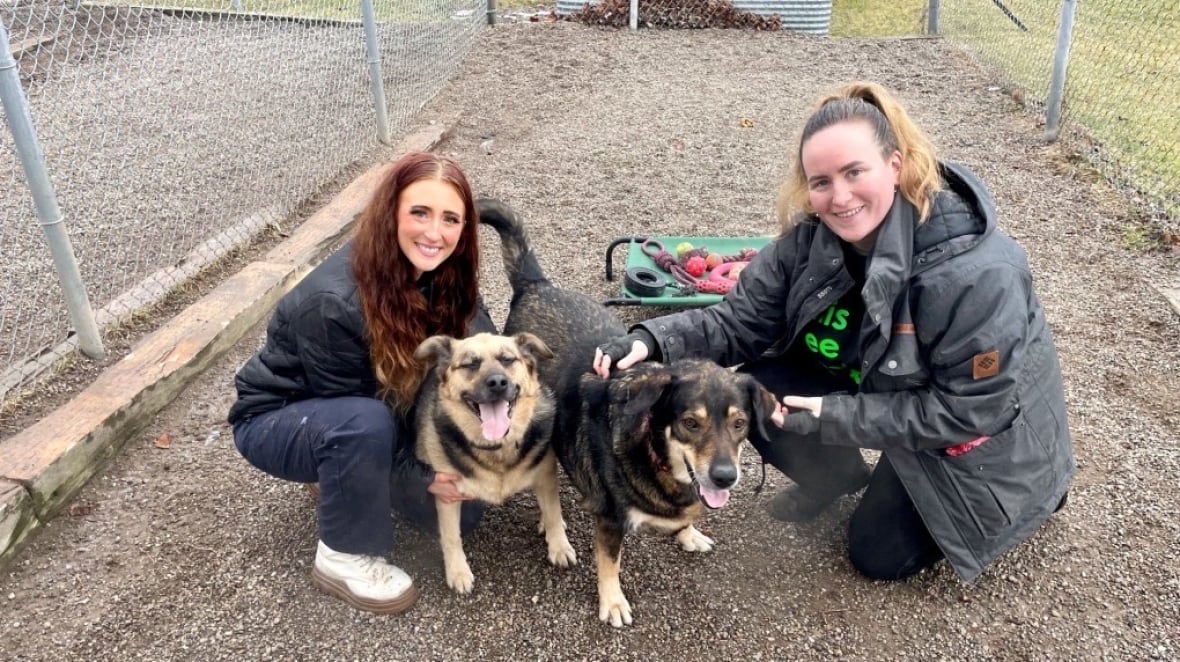More pets are being surrendered to London shelters as cost of living goes up
London shelters are reporting a steep increase in the number of pets winding up in their care

London-area shelters are reporting a steep increase in the number of pets being surrendered, and affordability is one of the main factors.
Cost of living increases are catching up to some pet owners feeling pressure in their budget. An annual report from London Animal Care Centre (LACC) shows more people aren't able to spare the extra cash for their pets, with pet surrenders increasing steadily over the last four years.
The rising costs are something Londoner Demme Alexander is seeing. She spends about $80 per month just in food costs for her pug, Madden, and then there is the added cost of veterinary care.
"I try to make it as affordable as possible while still giving him the best he can have," she said, while out at a dog park in London.
Nicole Van Dyke and her son, Will, try to be ready for any incidental costs for Izzy, their Schnauzer-Yorkie mix, which means taking her needs into account when budgeting.
"Food bills cost a lot, and vet bills," Will said. "She's really spoiled."
His mom Nicole is noticing too. "It does seem that over the years there's been an incremental increase in costs, rising with the inflation we're seeing in other areas," she said.
"There is a significant cost in taking care of your animals, feeding and vaccinations and proper animal welfare," said Kent Lattanzio, manager of LACC. "Sometimes it just becomes too much for a family to to take on and continue taking on."
Many of the dogs LACC are seeing lately are around three or four years old, Lattazio said, likely puppies bought or adopted during the pandemic.
LACC saw a 55 per cent jump in intakes for cats and dogs since 2021. That year, it saw 1,460 dogs and cats come into their care, increasing year-over-year to 2,269 in 2024. Monthly reports for this year show it's on track for a similar amount.
Economic pressures increasing
The Humane Society of London and Middlesex (HSLM) is seeing a similar increase in pandemic pets in their shelter, and are even running a wait-list for new pet surrenders. It's largely due to the fact that people's lifestyles have changed, according to Marrisa Sitts, the director of animal health and services at HSLM.
"There are so many economic pressures increasing," Sitts said. "We're seeing the fallout of that, with pets not being able to remain part of the family because people may have to choose between what they can afford for themselves and their children versus their pet."
Sitts is also noticing an increase in pet care costs, and a lack of accessible veterinary care, she said, and it shows up in the preventative medicine gaps in the animals coming to them.
An investigation by CBC's Marketplace earlier this year found that the cost of veterinary care is being driven up across the country by corporations buying vet clinics and raising prices.

Before an owner surrenders their pet, HSLM always tries to see how they can help the pet stay in the home, Sitts said. They run a pet food bank called No Empty Bowls, and try to help with behavioural issues and direct owners to available veterinary care.
"I think really we just need to create a larger social network so that people don't feel like their only option is to surrender," added Sitts. "We want them to reach out to us for resources."
In addition to better education about proper pet care and costs, Lattazio would like to see fewer people getting their new pets from indiscriminate breeders online. With no interview process or regulations, lots of those pets end up in the shelter, he said.
"I always say, if somebody wants a pet for their home, first visit the animal shelter."
Adoption rates are slowly on the rise though, according to the LACC reports. The shelter has been using social media to advertise, Lattazio said, and they've found it's helping more people connect and emphasize with the pets' stories.

